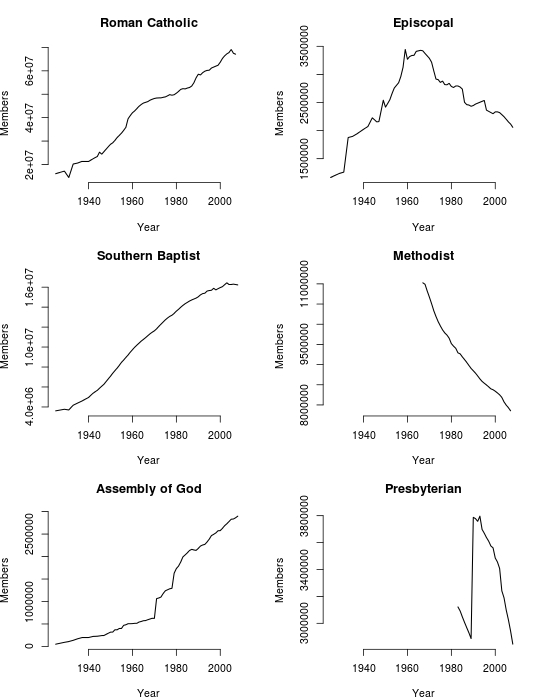It's useful to remember, when "culture war" fights reach a fevered pitch, that these conflicts and controversies are stoked and perpetuated in large part by people who don't really care.
It's politics. And political expediency.
There are those who do care, of course, and who really are deeply concerned about religious colleges and hospitals, for example, being required to offer birth control as part of their health care plans. But there are just as many or maybe even more who seize on such issues without any convictions except political gain. As much as Republican leaders shouted about "religious liberty," it was fundamentally political "points" that motivated them, not fear of religious exercise being curtailed by a Health and Human Services mandate.
This is clear in how the issue has been handled after it passed from the headlines.
If one actually believed that this mandate is a violation of the free exercise of religion, this isn't how you'd respond. The actual actions of the representatives make it seem like this wasn't seen as a matter of defending the Constitution, but rather rhetoric and politics. The issue is a wedge, which might move some voters right, and motivate others to go to the polls."But now, with the rule set to take effect Wednesday — part of the 'Obamacare' law the GOP hates so much — the fiery repeal rhetoric has fizzled. In fact, few on Capitol Hill are saying anything about it at all.
"And that House vote to block the rule? Never happened — and isn’t in the works either. A group of die-hards on the issue asked for it again in a closed-door meeting [last] Wednesday with House leadership but said no promises were made.
"Even Rep. Jeff Fortenberry (R-Neb.), one of the most vocal critics of the rule and co-sponsor of a bill to eliminate it, has gone quiet now that the rule is about to kick in."
There's no evidence, though, the Republican party as a party agrees with those suing the federal government over this birth control mandate that "after August 1, 2012, Plaintiffs will no longer have the right to make health care insurance decisions in line with their Catholic views," because on Wednesday the HHS rule "will go into effect and force Plaintiffs to pay, fund, contribute, or support artificial contraception, abortion, abortifacients or related education and counseling, in violation of their Constitutional rights and deeply held religious beliefs."
It's hard to see how the Republicans' very tactical response is anything other than a betrayal.
Not that there won't be congressmen and women across the country campaigning for re-election on the platform that something must be done on the issue they failed to do anything about.

















